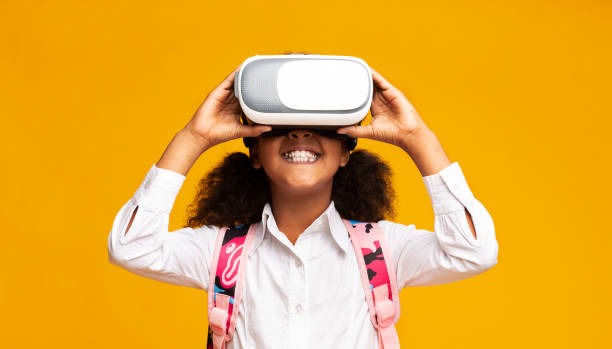Virtual Reality (VR) technology has come a long way in recent years and has become an increasingly popular form of entertainment for people of all ages. VR gaming provides a unique and immersive experience that has many benefits for children, including educational benefits. In this article, we will explore the advantages of playing VR games for kids and how they can be used as an educational tool.
First and foremost, VR gaming provides a safe and controlled environment for kids to explore and experiment. Unlike traditional video games, VR games place players in a virtual world where they can interact with their surroundings, engage in physical activity, and practice problem-solving skills. This type of experience allows kids to test their limits and explore their interests in a safe environment, which can help to build confidence and self-esteem.
Moreover, VR gaming can help to improve children’s hand-eye coordination and motor skills. Many VR games require players to use hand controllers or other physical input devices, which can help to develop dexterity and fine motor skills. In addition, the immersive nature of VR games can also help to improve reaction time, as players need to quickly respond to events and changes in their virtual environment.
Another benefit of VR gaming for kids is that it can be used as an educational tool. VR games can provide a fun and interactive way for children to learn about subjects such as history, science, and mathematics. For example, there are VR games that allow players to explore historical periods, such as the Roman Empire or medieval Europe. These games can help children to learn about different cultures, historical events, and the way people lived in the past.
Similarly, VR games can also be used to teach science and mathematics concepts. For example, there are VR games that simulate scientific experiments, allowing players to manipulate virtual objects and observe the results. This type of interactive experience can help to make these subjects more engaging and accessible for children, as they are able to experience concepts firsthand rather than just reading about them in a textbook.
In addition, VR gaming can also help to develop critical thinking and problem-solving skills. Many VR games require players to solve puzzles or make decisions that will impact the outcome of the game. This type of interactive experience can help children to develop their ability to analyze information, make informed decisions, and think critically. These skills are not only useful for academic success but also for success in the real world.
Finally, VR gaming can provide children with a sense of community and social connection. Many VR games allow players to engage in multiplayer experiences, where they can interact with other players from around the world. This type of social interaction can help children to develop important social skills, such as communication and cooperation, as well as provide them with a sense of belonging and community.
In conclusion, VR gaming provides many benefits for children, including improved hand-eye coordination, motor skills, and critical thinking. Furthermore, VR games can be used as an educational tool to teach subjects such as history, science, and mathematics in a fun and interactive way. Finally, VR gaming can also provide children with a sense of community and social connection, helping to develop important social skills. With all these benefits, it is clear that VR gaming has much to offer children and is well worth exploring as a tool for education and personal development.

